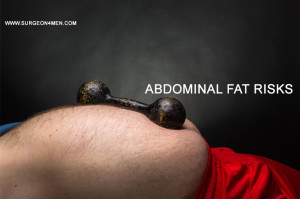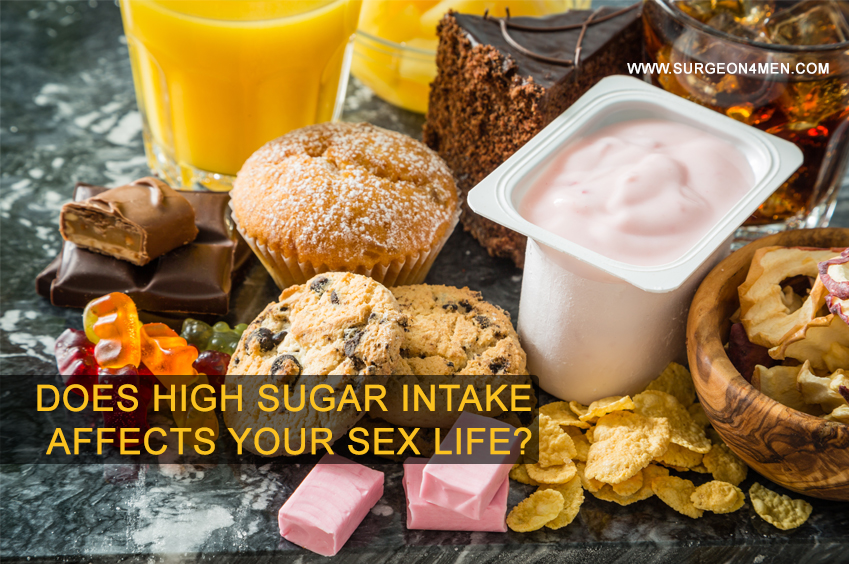Does High Sugar Intake Affects Your Sex Life?
For a lot of people, sugar is the real spice of life, but is it really good for you?
A number of clinical studies have already provided statistical evidence that high sugar intake has deleterious effects on the metabolism and overall physical health, but let’s see if and how it affect your sex life.
Pathophysiology Of High Sugar Intake And Effect On Sex Life
According to a latest research study published in the Journal of Clinical Investigation (1), scientists discovered that high sugar intake can turn off special genes that regulates the secretion of sex hormones.
Simple carbohydrates such as glucose and fructose are found abundantly in bakery items, breads, fruit juices and carbonated beverages as well as nutritional sources such as grains, starchy-vegetables and fruits, legumes, flour, milk and other dairy products. Simple carbs are also the simplest form of sugars. These are also readily available into the blood stream soon after the ingestion of high carb meal. High influx of simple sugars into the blood stream activates the liver enzymes and  excessive sugars are converted into lipids (that are stored in the liver until required during periods of low blood sugar levels).
excessive sugars are converted into lipids (that are stored in the liver until required during periods of low blood sugar levels).
Unfortunately, high lipid stores in the liver can deactivate the vital genes (such as sex hormone binding globulin gene), which maintains a balance between estradiol and testosterone. In other words, unregulated secretion of SHBG can lead to abnormal serum levels of testosterone and estrogen, which can present with a wide variety of symptoms such as acne, atherosclerosis, unexplained infertility, metabolic derangements and cardiovascular dysfunction in men and polycystic ovaries, heart diseases and high risk of developing uterine cancer in women.
What Are Other Complications Of High Sugar Intake?
It is no brainer than high sugar intake can lead to several metabolic derangements such as:
- Liver dysfunction: Abnormal sugar metabolism and high lipid conversion can lead to liver dysfunction which can affect the synthesis and metabolism of different endocrine hormones.
- Insulin imbalance: Poorly regulated blood sugar levels and liver dysfunction can aggravate the risk of developing type 2 diabetes due to insulin imbalance (or acquired insulin resistance). According to a new study reported in the American Journal of Medicine (2) it is suggested that 51.2% men with type 2 diabetes develops erectile dysfunction.
- Weight gain/ obesity: High intake of simple sugars disturbs natural metabolic processes and leads to rapid weight gain or obesity. Risk of sexual dysfunction is 4-5 folds higher in obese individuals due to hormonal imbalance, poor stamina and a variety of other psychological factors.
- Cardiovascular issues: As discussed previously, high sugar intake can directly as well as indirectly lead to cardiovascular issues such as angina, myocardial infarction, accelerated aging, hypertension, hypercholesterolemia, atherosclerosis and other ailments.
How To Address This Issue?
Unfortunately, an average American consumes abnormally high amounts of sugar, which further adds to the magnitude of the problem. According to latest estimates, an individual on typical American diet consumes more than 2.5 pounds of sugar per week, which is fairly high. In order to maintain optimal health and quality sex life, it is very important to introduce these simple interventions in your lifestyle and diet:
- Cut table sugar from your diet and rely on natural sweeteners (such as honey)
- Limit the intake of processed foods (that are very high in simple sugars) and rely on organic, unprocessed dietary sources.
- Eliminate soda and carbonated beverages (that are loaded with high fructose corn syrup or HFCS).
- Incorporate regular physical training in your lifestyle to regulate sugar balance and carbohydrate homeostasis.
- Make sure to read all the labels and packages before making a purchase. Try to buy products with low percentage of simple sugars.
- Speak to a registered dietitian to learn about other effective ways of regulating your diet.
References
1. Selva, D. M., Hogeveen, K. N., Innis, S. M., & Hammond, G. L. (2007). Monosaccharide-induced lipogenesis regulates the human hepatic sex hormone–binding globulin gene. The Journal of clinical investigation, 117(12), 3979-3987.
2. Selvin, E., Burnett, A. L., & Platz, E. A. (2007). Prevalence and risk factors for erectile dysfunction in the US. The American journal of medicine, 120(2), 151-157.
3. Malavige, L. S., Jayaratne, S. D., Kathriarachchi, S. T., Sivayogan, S., Ranasinghe, P., & Levy, J. C. (2014). Erectile dysfunction is a strong predictor of poor quality of life in men with type 2 diabetes mellitus. Diabetic Medicine, 31(6), 699-706.
4. Malik, V. S., Schulze, M. B., & Hu, F. B. (2006). Intake of sugar-sweetened beverages and weight gain: a systematic review. The American journal of clinical nutrition, 84(2), 274-288.

